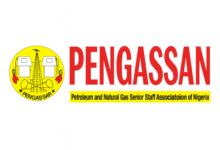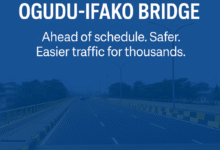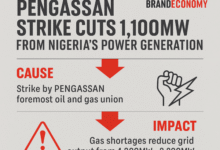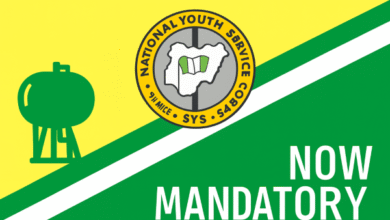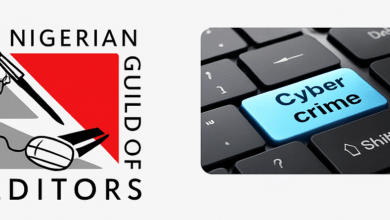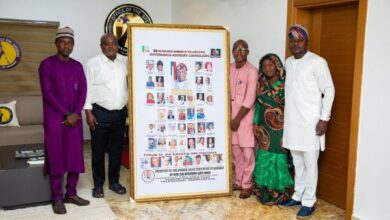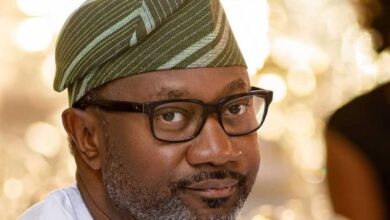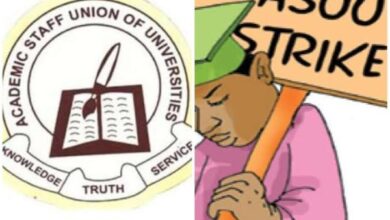BRANDPERSONALITY: NIGERIA’S BRAND LIABILITIES ARE ERODING BRAND ASSETS. -Tunji Abioye, FUEL COMMUNICATIONS.
As far as advertising and brand communications go you can safely say
that he is a thoroughbred professional with a knack for the unusual who has seen
it all. Paying his dues as they say, from the lowest rung of the ladder to the very top in
a 1st class Agency and stepping down to found a start-up at perhaps one of the most challenging eras of the marketing communications industry both globally and in Nigeria. BRANDPOWER’s Afolabi Idowu and Wale Gbadamosi recently visited erstwhile
Managing Director of Rosabel and now founding Managing Director of Fuel Communications who among other things tells us that…
NIGERIA’S BRAND LIABILITIES
ARE ERODING HER BRAND ASSETS – Tunji Abioye, FUEL COMMUNICATIONS
You left Rosabel when it was at was at its peak making waves to start up, Fuel Communications. Can we know what brought about your departure?
When I get asked this question about what may seem to people as a departure from an agency that was doing remarkably well, what I try to do is remind them that as at the time I left Rosabel I had spent 16 full years, in fact I left on the dot of my 16th year. So if you have spent 16 years in a company and you had done remarkably well you must then move on to the next level. You see, I came into Rosabel as an executive trainee, I came in green, I didn’t know jack about advertising business and by the grace of God I rose to being the Managing Director of the company; what more do I need to prove?
The critical point for me was how to think of doing something different and that was to start up a business of my own and start putting the acquired skills and resources that I had gained in the course of my 16 years of sojourn in Rosabel into a new project and the new project to me was clearly Fuel. I wasn’t doing anything that was unusual or out of place; in fact, if anything, I was doing what I think was at that point, appropriate to take the game to a different level.
Spending over 16 years at Rosabel, you must have been very young when you joined Rosabel.
Not particularly once I left school I was employed in few places and then got into advertising and what happened was that from day one I was on a fast track with Rosabel. I proved myself quickly by the grace of God and then I was able to move from one step to the other handling different brands learning as I moved and then a few things happened along the line and I became the first non-founder MD of the agency.
Can you give us a little bit of insight of how the experience has been so far?
Well, I think the journey for us at Fuel has been really quite remarkable. Sometimes when we look back and say to ourselves we’ve only been in this business for about 2 and half years or so… we wonder how things have turned out so quickly for us. The whole idea of Fuel came to us when we saw that the dynamics of the advertising business globally is changing. What we found was that a lot of agencies are not only being driven by what the brands and consumers in different segments need but they were driven mainly by; let’s do advertising, let’s put some press ads in the papers, let’s do some TV commercials whereas the dynamics of the game was changing, a lot of consumer involvement in the game of marketing communications was becoming really quite strident and a lot of agencies were not paying attention to them.
We also saw that there was an increasing need for some differentiated kind of communication a type that tends to become very dramatic, tends to be more unexpected, tends to be popular… so I thought that we would do something different and of course we also found that the skill of the advertising business also needed to be challenged. We found that a number of agencies especially big agencies need to cut down on size and scope because the nature of the demands on agencies were becoming different. We saw all these happening in quick succession and don’t also forget that the years of 2009 and 2010 was also very difficult for so many agencies because of the global economic meltdown, we saw all these happening in quick succession and we thought that hey! there’s an opportunity here and so we started the business May 1st 2010 and I think the journey has been very good for us. To look at the number of brands we work on now in the agency is also very intriguing, very amazing the pitches at which we have won businesses and we think that looking ahead the future is extremely bright.
What is the strategy behind Fuel Communications for getting business and having many clients in the midst of older and bigger agencies?
Our strategy for business acquisition is multifaceted, and I’m sure that, you can understand. You’ll be amazed at the number of businesses and calls that we get from companies that we don’t even know who only have seen the quality of our work. We saw this campaign that you guys did; can you come over and have a meeting with us? Can you handle our brief? So with that, from our work we get referrals.
From our existing clients, clients whom we have worked with who are satisfied with what we are doing and the caliber of things we do also refer business to us and certainly we also get involved in pitches that are called. We also do something of seeking after prospective businesses that we think require some help in their own marketing communications agenda.
In all of these, we are also very selective in the kind of clients and brands that we work for; there are brands that wouldn’t allow you to do a professional work we’ll rather not work for such even if they are putting all the money that is available on the table. As a matter of fact, there was a campaign that we did in our very early days for one of the oil majors and after doing the campaign, they saluted the thinking and they differentiated the strategy that we deployed and they were like they’ll like to go on with the campaign but before we take it forward, we’ll like for some amendments to be done and by the time we saw the whole gamut of what they wanted, it was going to compromise the whole idea of the campaign so we had to drop the curtain on it. We know what’s on the table but the kind of work that we will be glad to do the client won’t allow it, so we just had to walk away. So we are very selective and choosy in working with clients who will only allow us to do damn good creative work that we set out to do.
Now let’s go deep into the industry, APCON recently advised practitioners to start making use of local content, do you think we have enough creative hands to handle the creative and advertising briefs from the local and multinational clients in this country?
My response is a definitive YES, alright… and I will justify it! Nigeria is not bereft of talent and as a matter of fact, Nigeria is brimming with talent. The smart agencies and also the smart companies in Nigeria are deploying very creative means of unearthing these talents. They are all over the place, they are in Mushin, Ajegunle, Ikoyi, Surulere, and they are all over the place even beyond Lagos. The critical point really is that agencies must learn to find clever and unique ways to tap into this abundance of human talent that you find all over the place, talent does not equate to University education and people make a mistake that once you have gone to the University or Polytechnic that you are talented.
If it’s only about talent, we have enough talent in the Nigerian space that the creative agencies or advertising industry can use to champion the development and growth of brands but I think that the issues around the APCON reforms go beyond the idea of adequacy or enough quantum or the availability of enough quantum of talent in Nigeria, there are other issues involved.
The name FUEL, what’s the niche behind it?
Let me also say that you are not going to be the first person to ask this question, people always ask the question what’s the link between an advertising agency or a creative agency and the name Fuel?
I will explain it this way, often what we say is that, when our name is mentioned both in meetings or a session and they ask a question what’s the link between our name and what we do. If you look at brands what brands require whether it’s a young product that is seeking to become a known brand or a fairly established brand that is seeking to becoming more prominent what many of these brands are looking for is some sort of energy, support, some oxygen, some backup. Now if you take your mind off that and go to a car, a phone or an aero plane each of these items that I have mentioned for them to actually propel and make any level of advancement, they need fuel. So what we have done is to take a metaphor that is known and try to now create our agency persona around it. If you look at our logo, you will notice as well that the logo is done in the shape of a SIM card. Without a SIM card, all the functions loaded with the cell phone becomes useless, the metaphor therefore, the symbolic representation is that if any brand is seeking for growth, for enlargement for advancement then this is the place to come to.
What is your take on the renewed interest of major global agencies opening up shops directly in Nigeria as against the previous practice of affiliation with local agencies?
My intuition is that you are trying to make some allusion to the reform that is going on in the industry and also to try and explain what you see as the under-current in the industry. My take is this; the global economy is becoming a lot more unified. Unified in the sense that, they say the world has become a global village. It is an enlarged village now and therefore there is no sense of isolation that is happening in certain markets that is not felt in other parts of the globe. What we have seen is that in the 3 or 4 years there’s been a lot of challenges in the economies of the West which naturally has impacted on the growth opportunities in Europe and America and the only sense of growth you are seeing is happening in Asia and Africa. As a matter of fact, Africa has been growing at a higher rate in the last 2years than the whole of Europe which therefore meant that a number of companies in Europe and America are now compelled to begin to look for growth opportunities outside of their traditional zones, let’s look at what is happening in Asia, let’s look at Africa, let’s look at the emerging markets and, of course, Nigeria is one of those leading lights in the emerging markets, therefore, their searchlight has been thrown unto these countries. Yes, you are right; there’s been a regime of affiliation. In the past, affiliation was a principle that was suitable at a time when the West was not particularly (when I say the West now, I mean the advertising arm of the western economy) was not particularly interested too heavily in taking a massive presence in Africa or taking a massive presence in Nigeria. So, it’s sufficient enough to just say we have an affiliation partner in Nigeria and that was fine but given the growing significance of the African market, indeed Nigerian Market, of course the firm networks are now looking beyond just affiliation they want to also take some controlling interest in the advertising industry in Nigeria. Now the question now is should the gatekeepers of the advertising industry allow that to happen or not? There are different submissions by different people with different opinions on this matter. But my thinking is that every industry depending on the state of its growth, depending on the sensitivity that is found in that industry must determine how much of protection must be put in place to ensure that a new era of new colonialism is not birthed and I think that’s what the Nigerian advertising industry that is being championed by APCON, AAAN and all the other stakeholders is trying to achieve to ensure that all in the name of foreign direct investment we don’t just wholesomely, entirely handover the industry that people have tried to grow over these years into the hands of foreigners for them to milk. Yes, foreign direct investment is good but we must be able to identify our own interests, our own local interests and protect it has much as we can and that’s what is at play. Yes, the kind of growth that we should have experienced in the industry in the last 20 or 30 years is not necessarily what we have seen that is correct but the answer to that is not also to now say you invite a club of foreigners and say what we couldn’t develop we are handing it over to you, come do it and we will be watching, I don’t think that is the recipe. The question is that yes we must find a very healthy balance in the way we invite and accommodate foreign interests into the Nigerian advertising industry.
Can we have your take on the position of Scanad Chairman, Mr. Bharat Tharkar that multinationals are not satisfied with the services that they receive from Nigerian agencies?
My comment is that, those utterances are self-serving. The gentleman has his take; he’s trying to take a position in the industry and therefore, I think he must offer a logic that provides in his view a logical window for whatever he’s seeking to do in Nigeria. I’m not sure it is right to wholesomely say that all the multinational companies in Nigeria find it difficult to find some level of satisfaction with what they are getting from the Nigerian marketing communications community, I don’t think it’s right. Some relationships between some agencies and their multinational clients date back 10, 5, some 15 years and I do believe that you couldn’t keep a relationship that long if there isn’t a sense of mutual satisfaction. So, I think those comments are self serving and must be seen in that context.
On the aspect of rebranding Nigeria what is your take on that project and how do think we can make Nigeria a great and envied brand?
Branding a country is a worthwhile venture but you see when you want to brand a country, you must do it in a context of a thorough understanding of the elements that are required in the branding process. What do I mean? There is wholesome relationship between the attempts to brand a country, the assets of the country, the liabilities of the country, the reality that is on the table and the totality of the consumer experience of that country. Those things are inter-related. Now, where we stand today in Nigeria is that there are several liabilities of this country that are seemingly beginning to make the effort at branding Nigeria and its assets a difficult project to embark on and except we begin to manage those liabilities, a country that is one of the biggest oil producers in the world yet also a net importer of refined products, a country with a whole lot of natural resources from which power can be derived today the largest importer of generating sets, a country that has so much in terms of oil receipts and revenues from other things yet has a huge level of poverty, a country with such an amount of break down in infrastructural base. These liabilities are beginning to erode the assets of the country and therefore in ensuring that your branding project becomes as compelling as you want to make it, you also, must work on these net liabilities to bring them down and you can now use your assets that you have to promote the country and as long as the consumers who are interfacing with this country begin to see a growing propensity in your asset-building and the acquisition of your asset equity then you are on your way to a very serious rebranding enterprise. But except you do that, you are just going to be kidding yourself, it’s like putting a white-wash on a dirty wall and it’s not going to work.
Lastly, can you please tell us “Who is the man Tunji Abioye?”
Tunji Abioye is a serial entrepreneur, a damn passionate soul. Passionate about communication, passionate about knowledge and then I enjoy leading people, I enjoy sharing, I am married with 3 kids, I read English at my Bachelor’s degree level at the University of Ife and then my Masters degree in Psychology at the University of Ibadan. I started out my career at Rosabel, left there to establish this firm that is championing a different way; a different approach to marketing communications, I am a Christian, I love God. That’s Tunji Abioye.
Thank you.



